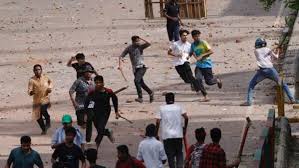
Bangladesh has resumed academic activities across the country after a month-long closure of all educational institutions. Schools, colleges, and universities reopened their doors on Sunday, August 18, following a period of suspension caused by unrest related to student-led protests and political upheaval.
The closure began on July 17, prompted by violent clashes during demonstrations demanding reforms to the job quota system. The unrest led to a temporary shutdown to ensure student safety amid the turmoil that eventually resulted in the ouster of Prime Minister Sheikh Hasina.
On August 15, the Ministry of Education issued a directive allowing the resumption of classes, with all institutions reopening the following Sunday. The decision came after Chief Adviser Muhammad Yunus instructed that academic activities resume.
Reports from the Daily Star noted that students, dressed in their uniforms, were seen heading to their schools and colleges in the morning, with many accompanied by their guardians. However, the reopening has led to significant traffic congestion in various parts of Dhaka city.
Initially, classes were planned to resume on August 4 for government primary schools, excluding those in 12 city corporations and the Narsingdi municipality. This plan was postponed, and the Higher Secondary Certificate (HSC) and equivalent examinations, which were also delayed, are now scheduled to restart on September 11. The revised examination schedule will run through October 23.
Public universities had faced interruptions since July 1 due to a teachers’ strike over a new pension scheme. Although institutions were officially declared open on August 7 following the political changes, full academic resumption was hampered by low student attendance.
The working week in Bangladesh runs from Sunday to Thursday, and the reopening of educational institutions marks a significant step toward restoring normalcy in the country’s academic sector after a period of considerable disruption.
Sources By Agencies


